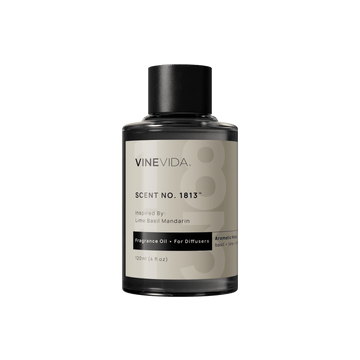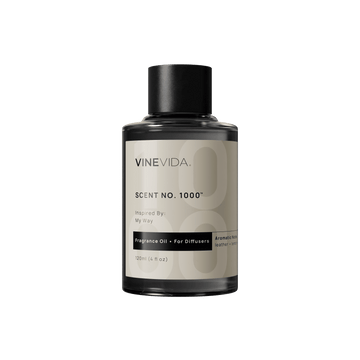Scientific Name: Cymbopogon Nardus
Origin: Sri Lanka
Plant Part: Grass
Scent: Warm, Woody, and Fresh Citrusy Lemony
Color: Light Pale Yellow to Yellowish-Brown
Consistency: Thin
Perfumery Note: Top - Middle
Initial Aroma Strength: Medium
Extraction Method: Steam Distilled
Ceylon Citronella Essential Oil: Benefits, Uses, and Blends
When it comes to trade, Citronella Oil is put into two different classifications of chemotypes. These two chemotypes are Java and Ceylon, and each has its own distinct chemical components. Citronella comes from the genus Cymbopogon, which is also known as Lemongrass. Many people wonder if Citronella and the Lemongrass commonly used for cooking are the same thing, but they are actually two different species of the same genus.
Citronella is believed to have originated from the Mana Grass in Sri Lanka. The name itself comes from the French word “Citronelle” which was used to reference any plants or herbs with a citrusy fragrance.
Citronella Essential Oil Uses
Citronella Essential Oil has many uses, the most famous being as a natural insect repellent. This oil also shows signs of being an antifungal agent, though after insect repellent its most common use is in candles, soaps, incense, and cosmetic products. In addition to citronella’s use as an insect repellent, traditional uses included its use as both a diuretic and an antispasmodic. Citronella was also a key ingredient in the treatment of both digestive and menstrual-related issues. Today, citronella’s main use is to combat mosquitoes; though recent research indicates other potential uses in the health sector.
Citronella Essential Oil Benefits: Component Breakdown
- Geraniol: Though present in geraniums, as the name indicates, geraniol is much more prevalent in Rose and Citronella Oils. Geraniol is a product of the scent-glands of honey bees, which they use to mark nectar-bearing flowers. This component is a common insect repellent, but recently other potential uses have arisen. It shows promise for its use in helping topical treatments penetrate the skin, as well as showing indications of being an anti-cancer agent. Research also indicates that geraniol is a potentially effective antiparasitic agent.
- Camphene: Camphene is a common flavoring agent, as well as being a key ingredient in many fragrances. It is one of the main components of Citronella Essential Oil benefits.
- Limonene: Limonene is a chemical component common in Citrus rinds. It is also a common ingredient in medicines, chewing gum, and other food and beverages. Due to its citrusy scent, you will often find it in fragrances, cosmetics, and even cleaning products. You will also find limonene on the United States Environmental Protection Agency website as a botanical insecticide. Studies show this compound to be effective in treating heartburn, acid reflux, and possibly even cancer. Studies show promising indications of chemopreventive activity.
- Methyl Isoeugenol: This component is found in several plants, and plays a role in the attraction of pollinators, though it repels other insects. There are also positive indications Methyl Isoeugenol is effective as an antifungal.
- Geranyl Acetate: Geranyl Acetate is a natural component that occurs in many essential oils. It smells like Lavender and is a common additive in creams and lotions.
- Borneol: Borneol has a camphor-like aroma and is found in many fragrances. It is common in the Teak Tree family but is also found in other essential oils such as Citronella, Cinnamon, and Galangal.
- Citronellal: This is the main component that contributes to citronella’s lemony scent. Studies show the more citronellal, the more effective its use as a mosquito repellent. It also appears to be an effective anti-fungal agent, though more research is necessary.
- Citronellol: Naturally occurring in Citronella, Rose oil, and Geraniums, citronellol shows potential as both an anti-inflammatory agent and an analgesic.
Citronella Essential Oil for Wholesale Use
Insect Repellent
Part of the reason why plant components are so common in insecticides is that they contain constituents that repel bugs. This is to help protect themselves from insects who may want to chew and feed on their leaves. Dating back to ancient Greek and Roman times, plants have long been burned or in other ways used to repel mosquitoes and other irritating insects. Citronella Essential Oil insect repellent is some of the most widely used on the market.
So, does citronella essential oil repel mosquitoes?
Yes. Studies show citronella to be very effective against mosquitoes, however, the duration time is a lot shorter than that of DEET. This means regular reapplication is important. Another option is to add vanillin, which can prolong protection time.
As it stands, several studies are underway to improve the longevity and duration of plant-based insect repellents. This is due to customer demand for safer, natural products. At VINEVIDA we offer pure and natural essential oils, sourcing our Ceylon Citronella Essential Oil directly from Sri Lanka.
Citronella Candles
Another popular product on the market is the Citronella Candle. If you are new to DIY candle making, check out our blog post for more details. It’s not hard to do, and it ensures your candles will be pure, natural, and free of toxins. While burning a candle is not as effective as applying insect repellent, the strong scent of citronella can help mask your scent making it less likely you’ll become a tasty meal! Only light citronella essential oil candles outside, as inhalation of this oil is not advisable.
Soap Making
Citronella Oil’s antiparasitic and antifungal properties - along with its fresh, citrusy scent make it a great choice for adding to soaps. At VINEVIDA we are proud to support businesses that focus on natural products. This is why we offer competitive bulk rates to all artisan soap makers.
 Many soaps out there on the market are full of chemicals, and consumers are demanding safer alternatives. The soap market is forecast to almost double to USD $458.6 million by 2026, in comparison to what it was ten years prior.
Many soaps out there on the market are full of chemicals, and consumers are demanding safer alternatives. The soap market is forecast to almost double to USD $458.6 million by 2026, in comparison to what it was ten years prior.
Natural Fragrance
As the cosmetic and fragrance industries become more transparent, consumers are beginning to turn towards natural products. “Fragrance” is considered a trade secret. This means a company does not have to disclose what ingredients make up the fragrance in their products. Many of these ingredients are toxic chemicals and known irritants, which is why pure and natural oils such as those sold through VINEVIDA are quickly beginning to replace them.
You can add Citronella Essential Oil to all of your favorite lotions and potions. Simply place a few drops into shampoos, conditioners, and creams to enjoy its bright, cheerful fragrance.
Citronella Essential Oil: Popular Blends
Citronella blends well with other citrusy scents, such as Lemon and Lime. Other great options include Lemongrass, Peppermint, Tea Tree, and Eucalyptus.
Citronella Essential Oil: DIY Around The House
Many people relate synthetic insect repellents with harmful chemicals. If you decide to make your insect repellent at home, all you need are a few simple ingredients. Grab an empty spray bottle, ideally made of dark glass. This is because sunlight can reduce the effects of essential oils and cause evaporation. Next, add 125mL of water with 125mL of witch hazel. Then, all you have to do is add 30-40 drops of Ceylon Citronella Essential Oil.
Is Citronella Essential Oil Safe For Pets?
No. If you look online you will see differing information when it comes to whether or not Citronella Essential Oil is safe for pets. The United States Environmental Protection Agency, or US EPA, rates Ceylon Citronella as IV. This is “practically non-toxic”. It also says studies on lab animals found Citronella to be of low toxicity.
However, Ceylon Citronella Essential Oil contains geraniol, which is highly toxic to dogs. If you decide to use Citronella Essential Oil around your pet it is best to take precautions. Make sure your dog never ingests essential oils, and pay close attention to see if they seem uncomfortable or irritated. Always burn Citronella outside.
Precautions
Lighting Citronella candles indoors may cause breathing problems. If you are going to burn Citronella to repel insects, make sure you do so outdoors. Essential oils are extremely concentrated, which means you should never apply them directly to the skin. If you wish to use Citronella as a topical repellent always properly dilute first. We also advise using it on a test patch of skin 24 hours in advance to ensure there is no irritation.
Flash Point
95° C
Conclusion
You now know much more about Citronella Essential Oil and its various uses. Whether you appreciate it for its ability to ward off insects or simply enjoy its aroma, Citronella Essential Oil has a place in every household.

- Reviews
- Questions
Repels bugs
I actually use this around my door to repel flies and mosquitoes. It works well and also has a nice scent.
Great Citronella Oil
Great value and scent. Use for making home made fly sprays for our horses. Have purchased a few times now. received timely and packed well.
Beautiful scent
Beautiful scent. I use it with a carrier oil to prevent insect bites, and it works!
Great oil!
I use this oil to make my own candles and bug spray as well as fly spray for my horses and this oil is excellent quality!
tea tree oil to zap out cold sores, citronella for my bug spray recipes
I have two essential oils from Vinevida, Citronella and Tee Tree oil. Both are contained in small amber bottle with drop stropper. Both smell as expected. I use Citronella in making DIY bug repellent. O go through a lot, so I usually buy larger bottles. This is perfectly fine too. Country of Origin :Sri Lanka I use Tee Tree oil to stop cold sores in its tracks. I use it neat directly at first sign of tingle and it never fails to arrest their development. I keep several bottles around so I am not without it when the time inevitably comes (2-3x per year). I like small bottles like this for that purpose. Country of Origin: Australia 5 stars not because it is necessarily better than others, but because it meets my expectations of a quality essential oil.
You may also like
Recently viewed














 IFRA Statement
IFRA Statement


















